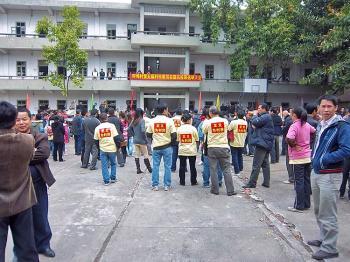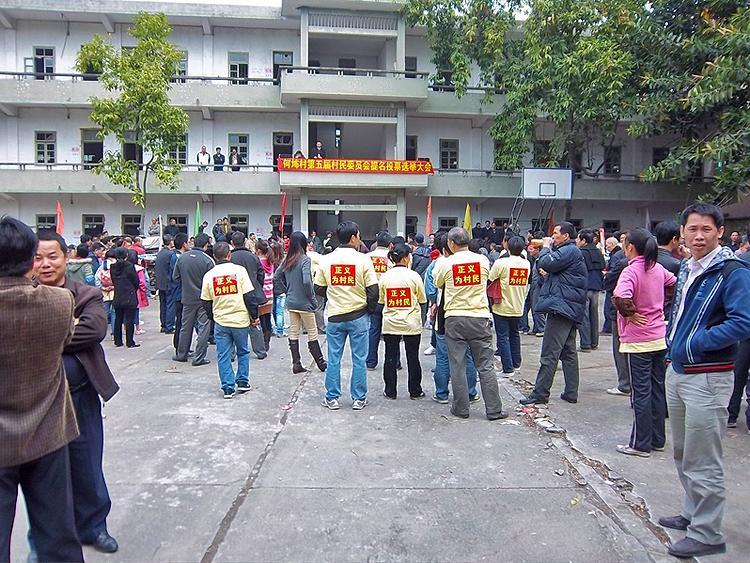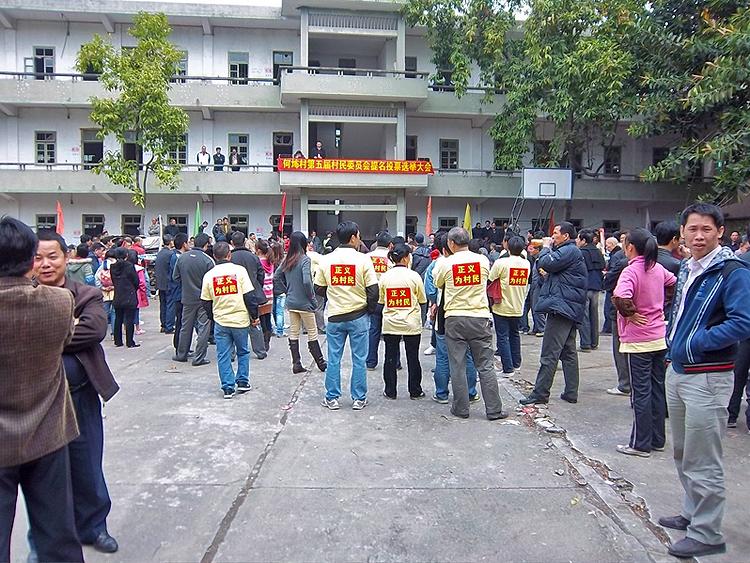Chinese Village Elections A Path for Local Gangsterism
Villagers say recent village elections are a farce, and gangsters are now members of the village committee.

Fifth village committee members' election at Hebu Village, Jianggao Town, Guangdong Province, March 26. Provided by locals
|Updated:




